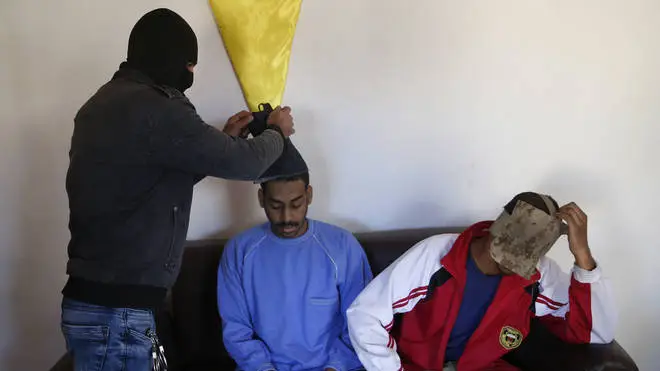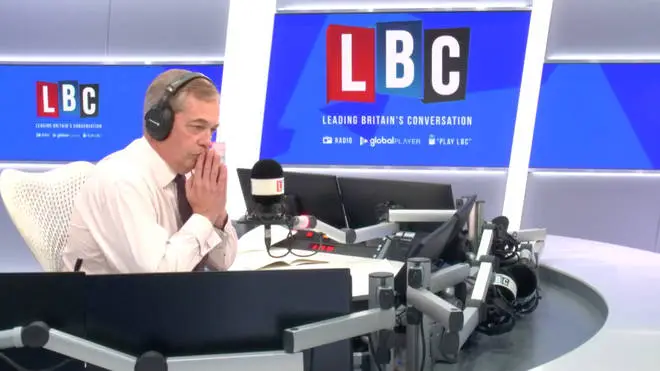
Nick Abbot 10pm - 1am
31 October 2019, 19:46 | Updated: 31 October 2019, 19:50
In a world exclusive interview on LBC, President Donald Trump gave a dramatic recount of Al-Baghdadi's death and revealed the British government refused to accept two members of the Isis Beatles back in to the UK.
The US leader told Nigel Farage the UK “didn’t want to take back” the terrorists, who took part in brutal executions in Syria.
He labelled the move “unfair” and said “nobody wants them.”The US captured the final two members of the terror cell, Alexanda Kotey and El Shafee Elsheikh, in February last year.
Asked by Nigel what should be done about the “thousands of people who fought for Isis in prison camps,” the President said: “We offered to give the ones from the UK back to the UK but they don’t want them, we offered France, we offered Germany.
“We captured them, we’ve got them, the Beatles we have – we have two of the Beatles, they were the worst.

“They came from your territory and you guys, you know, possibly incredibly smart, but maybe not, you didn’t want to take them back.
“So, as usual, the United States gets stuck with it and we’re handling it in a certain way and watching it very carefully.”
The Isis militant group, given their nicknames because of their English accents, killed American journalists James Foley and Steven Sotloff and British aid workers David Haines and Alan Henning.
They are thought to have been responsible for at least 20 foreign hostages, many of whom were tortured.
The pair are being held in US custody in Iraq before it is thought they will be returned to American soil to face the death penalty.
When asked if Britain could “expect [the US] to send them back to us, Mr Trump responded: “Well we would, if you’d take them, but you don’t want them back, nobody wants them, you know?
“They say ‘hey, let the United States take care of them, they take care of everything else, let them take care’, which isn’t fair.
“We offered France, Macron, we offered Angela, Germany, you know many of these people came from Germany, France, UK, and they all were so happy when we captured them.

“I said ‘good, now you can take them back and try them’, and I think they maybe didn’t hear the statement, they didn’t wanna hear it.”
Mr Farage also asked the US President about the killing of Isis leader Abu Bakr al-Baghdadi in Syria last week.It is believed the IS chief was killed in an explosion, reportedly setting off a suicide vest he was wearing, in Idlib province at the weekend.
His spokesman, Abu Hassan al-Muhajir, was also killed by the US military.In response to the events, Mr Trump said: “It’s been amazing. He was the head of Isis, he built a caliphate that was massive - the size of Ohio, in terms of land.
“It’s very big, between Iraq and Syria he had literally a piece of land that equated to the size of the state of Ohio and he had seven million people.
“When you see those orange suits where the heads were cut off that was him, when you see the Jordanian pilot who they captured and they burned him in a cage, that was him.
“He’s an animal and he died a coward, he died a very rough death I can tell you.
“These people we have, our soldiers, our military, is by far the greatest is the world, there’s nothing close, and they went in and he didn’t know what hit him.
“He was very well protected but they broke through like they were dealing with children, frankly, they broke through so easily and he was very well protected. He didn’t expect this to happen but tremendous protection.
“He died whimpering and crying. What he did to people, what he did to a young very beautiful young lady who was there, her parents were just devastated.
“I called them, I called many people, many of the parents and families I called of people that he killed.
“But he was a bad guy and he was bad for your country – that was a world favour, not just a US favour.”